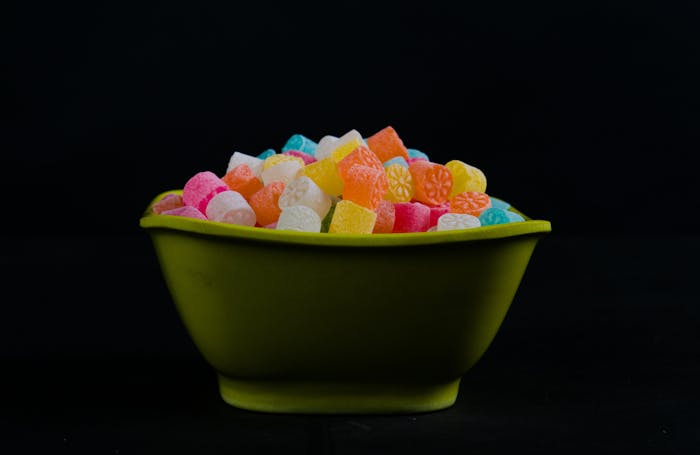
The wellness movement has gone worldwide, as people understand now more than ever the importance of being healthy.
The society that relied on prescriptions to fix their medical conditions is disappearing. Sure, a quick-fix medication might solve minor problems. But your nutrition is the foundation of your overall health, and today’s society learned this the hard way with COVID-19.
The reason behind your desire to boost your nutrition doesn’t matter. The fact that you’re ready to take action is the crucial part!
You could change your entire diet and lifestyle to get healthier, but that’s a challenging goal to aim for. The good news is it’s possible to improve your nutrition by making tiny habit changes.
With one change at a time, you can optimize your entire body’s health, both physical and mental.
Not sure where to start? These 11 small tweaks in your day will help you quickly boost your nutrition!
1. Start With Your Drinks
Most people find it easier to adjust their calorie intake by starting with their beverages of choice. If you can cut out even one soda, sugary coffee, or tea per day, you’re saving hundreds of calories.
When you consider how many calories you’re drinking with the “free refill” soda or tea option at a restaurant … you could have had that dessert you passed up!
Putting it in perspective, if you weigh 185 pounds, you would need to walk for 75 minutes at four miles per hour to burn 500 calories. That’s about three glasses of regular soda or sugary drink.
If you don’t get that amount of exercise or more each day, try cutting back on 500 calories worth of drinks.
2. Fill Your Plate With Healthier Foods
As you are getting used to cutting back on your favorite unhealthy foods, don’t drop them entirely. This “all or nothing” approach leads to binging and, frequently, giving up altogether.
Instead, fill up on healthier foods first, like a salad or other veggies. Then, turn to your yummy stuff but limit your portions.
The key is to eat until you are full, not overly full.
You do not have to eat everything on your plate. Try serving yourself smaller servings of each unhealthy food. Trick your mind (and your stomach) by adding bigger servings of the healthy sides.
3. Plan Your Meals
How many times have you caught yourself turning to fast food, restaurants, or quick unhealthy meals because you were running late? Or you were too tired to cook?
Meal planning is a smart way of using your downtime to save you time through the rest of the week. Yes, it takes an hour or two upfront. But the stress it saves, plus the healthy meals you get, make it all worth it!
There are tons of helpful sites and books to get you started in the world of meal planning. Don’t make it complicated, though. Start by planning the next day’s meals with what you have around your house or can grab at the store.
As you get the hang of it, slowly build up to meal planning for the week. You’ll learn the best storage containers for your most commonly used foods and the best shopping habits for your family.
4. Keep Healthy Snacks on Hand
Feeling the urge to munch on something?
Well, if you don’t have junk food on hand, you can’t eat it. Instead, buy healthy snacks and keep them stocked up.
Sometimes you think you are craving something when you’re actually just wanting to feel the texture of that food. A healthier alternative may do the trick!
Load up on yummy but nutrient-dense snacks such as:
- nuts
- pickles
- low-fat cheese sticks
- fruits
- raw veggies
For optimal results, it is therefore important to consume healthy foods and snacks. Even when eating healthy goodies, you should always portion yourself appropriately. Too much of anything is never good.
5. Skip the Processed Foods
Processed foods are full of empty calories. These aren’t just “empty,” though. The ingredients make your body work harder to get rid of them.
Think of these processed foods as filling your body with sludge.
So how do you know how to stay away from these unhealthy items?
Look for any food that is not in its natural state. If it’s changed to make it last longer, look prettier, or add flavor — it’s gone through processing.
Minimally processed foods, like chopped and bagged vegetables or fruits, are still in their natural state. But a microwave dinner, frozen pizza, or can of Spaghettios would all be heavily processed.
For many Americans, more than half of our calories come from ultra-processed foods full of chemically altered ingredients. These foods increase obesity and raise your chance of developing deadly health conditions. Cancer, diabetes, and heart failure all have links to processed foods.
Stick to foods as close to their natural state as possible to avoid the processed chemicals and additives.
6. Let Yourself Rest
Getting restful sleep is a vital part of nutrition. But what you eat can affect your sleep, too. It’s a catch-22.
To improve your slumber, make sure you’re getting a diet full of nutrients like Vitamin D. Avoid caffeine in the afternoon, and don’t eat a heavy dinner within two hours of bedtime.
Your body is still digesting it while you sleep, which can cause you to feel uncomfortable and mess up your sound rest.
Also, try to keep yourself from overworking. This increases stress and takes time away from self-care activities, like exercise and family time.
Balance your work and life schedule, and your nutrition will improve, too!
7. Pay Attention to Your Gut
Gut health is crucial to every system in your body, including your mind and heart. When you are feeling “off” in any way, it could be due to your diet.
If you’re not getting enough probiotics and fiber, you might mess up your digestive system. Your gut needs to have “good” bacteria in it to digest your food and eliminate the rest.
These microbes in your intestines link to your brain and heart through shared brain circuits. When your gut health isn’t optimized, the rest of your body isn’t working up to par, either.
Boost your diet to include foods high in fiber and probiotics to get your gut back where it should be.
8. Increase Your Water Intake
Most people don’t drink enough water for their bodies’ needs. Water is an essential part of every system, from flushing out toxins to spreading oxygenated blood through your veins.
Water also fills you up, so if you’re feeling peckish or hungry, drink a glass of H2O first.
Exactly how much water you should be getting every day depends on a few factors. Your weight, height, climate, and health goals are just a few of them.
One thing is for sure:
It’s better to have too much than too little of this essential nutrient!
9. Get Enough Vitamin D
If you work inside all day and rarely get into the sunshine, you should add a Vitamin D supplement to your diet.
Vitamin D is one of the most essential nutrients in your body. It’s responsible for keeping your bones and muscles in shape. It may help prevent diseases like diabetes and cancer. And it’s intricately linked to your mood.
There are dozens of health benefits to this vitamin, and many chronic conditions stem from Vitamin D deficiency. To ensure you’re doing everything you can to maintain good health, get your daily dose of Vitamin D.
10. Get Active
Exercise is for everyone. But how you exercise is unique to your preferences.
Movement is the critical part. It helps your gut health and boosts the circulation of oxygenated blood through your body.
Getting active can be as simple as walking your dog a few blocks or dancing in the kitchen when you’re cooking dinner. Park a little further away from where you’d typically park when you go to the store. Take the stairs instead of an elevator.
Minor habit changes improve your nutrition and your overall health gradually.
11. Swap Your Oils
When you cook, what do you use?
If your go-to is vegetable oil or butter, all you have to do is swap that to a healthier fat.
Even though you’re just cooking with the oil, the calories and nutrients seep into the food you make. It’s just as flavorful, if not more so, and better for you to use a different oil.
Extra virgin olive oil is the healthiest. You can also use sesame or coconut if the recipe calls for it.
Play around with the different types of oils and how they taste when you use them with certain foods. You’ll be experimenting with your culinary skills and improving your nutrition at the same time!
Conclusion
You don’t have to change your lifestyle all at once to be healthier. Improving your nutrition can be gradual. Ease yourself into better habits like these that become a natural part of your day!
Author Bio
Caitlin Sinclair is the Business Manager at Harvest at Fiddyment Ranch. With over five years of property management experience, she begins and ends each day loving what she does. She finds joy in helping current and future residents and makes Harvest at Fiddyment Ranch a place everyone loves to call home.











